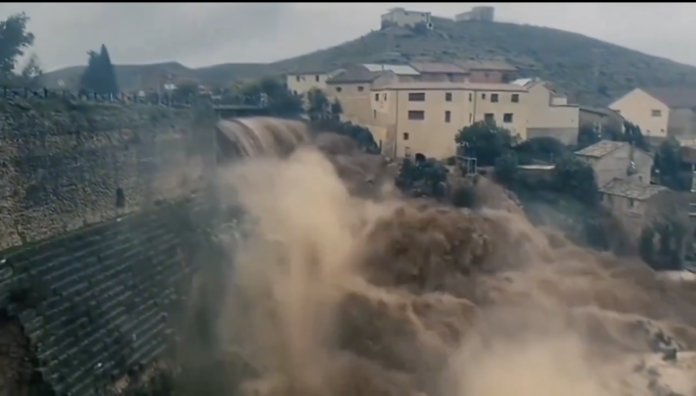Spain is reeling from one of its deadliest natural disasters in recent years, as flash floods in the southern and eastern regions have left at least 211 people dead.
Prime Minister Pedro Sánchez confirmed the devastating death toll on Saturday after meeting with emergency officials.
Most of the fatalities occurred in the Valencia region, where relentless rains and river flooding led to a large-scale catastrophe.
Woman Found Alive After Three Days in Flooded Car
In an astonishing twist, emergency responders rescued a woman who had been trapped in a vehicle alongside the body of her sister-in-law for three days.
The rescue happened in the municipality of Benetússer, south of Valencia.
Police released a video of Valencia’s civil defense leader, Martín Pérez, announcing the woman’s survival to his team, who erupted into applause.
According to Spanish news agency Europapress, rescue workers heard the woman’s cries as they towed away vehicles stuck in a tunnel.
Although the woman was taken for medical assessment, her current condition remains unclear.
Devastating Impact Across Communities
Tuesday’s storms and resulting floods have had a widespread impact on communities across southern and eastern Spain.
Cars, furniture, and debris lie piled up in mud-soaked streets, with buildings damaged and homes left in ruins.
Emergency forces continue searching areas that remain unreachable due to floodwaters, raising fears that more bodies could be discovered in submerged cars or homes.
Interior Minister Fernando Grande-Marlaska warned that the death toll could rise further as search teams reach new areas.
Thousands of residents in towns across the affected regions have lost their homes, livelihoods, and access to clean water and power.
Thousands Mobilize to Aid in Recovery
Amid the devastation, over 15,000 volunteers from Valencia have begun traveling to the worst-hit villages to aid in the clean-up efforts.
The first group of volunteers departed Valencia on Saturday, coordinated by a special volunteer center set up by the regional government.
Authorities are urging volunteers not to drive their own cars into the affected areas, where road restrictions remain to ensure emergency vehicles can access critical areas.
Emergency personnel are now focusing on re-establishing access to flooded villages and recovering bodies of those swept away by the storm.
“We are facing an unprecedented natural disaster that has taken a terrible toll on our citizens,” Prime Minister Sánchez said during a press conference.
Soldiers and Police Deployed to Disaster Zones
In a massive mobilization effort, the Spanish government has deployed 5,000 soldiers to join the existing 2,000 troops on the ground.
An additional 5,000 local police and Guardia Civil officers have also been sent to the disaster zones to help maintain order, assist with evacuations, and speed up recovery.
The extra forces are intended to prevent looting, protect vulnerable areas, and support the immense clean-up efforts underway.
“We need every hand available to help these communities rebuild,” Sánchez added, emphasizing the urgency of the situation.
Power and Water Slowly Restored
As emergency teams work tirelessly, many areas are gradually regaining power, though disruptions continue in the hardest-hit towns.
For countless families, returning to normalcy feels like a distant hope as they face the grim task of rebuilding from the ground up.
For now, residents and officials alike are focused on supporting survivors, accounting for the missing, and honoring the memories of the 211 lives lost in this tragic disaster.
The tragedy in Spain has left an indelible mark on the nation, as communities come together to begin the long road to recovery.

